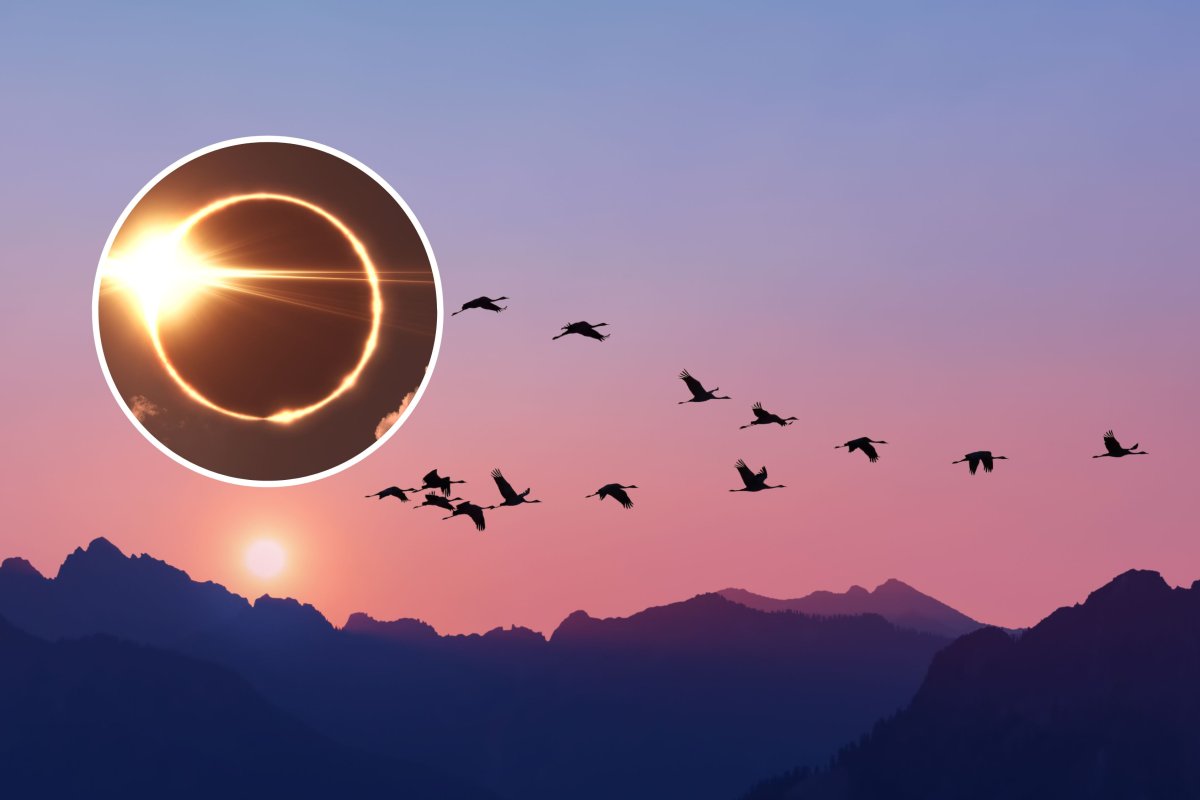During the recent total solar eclipse that shocked much of the United States earlier this month, birds were observed acting strangely.
Researchers at Cornell University’s Laboratory of Ornithology noticed that birds showed reduced daytime activity during the sudden darkening of the April 8 solar eclipse. obvious.
Cornell University researchers used U.S. weather radar stations to measure aerial activity of birds, bats and insects during a total solar eclipse. They found that when the sun disappears behind the moon, the birds’ daytime activities, such as swooping, decrease.
“From the data we’ve analyzed so far, this looks consistent with the patterns of aerial activity we recorded during the 2017 eclipse,” said Andrew Farnsworth, a visiting researcher at Cornell University’s Laboratory of Ornithology. Similar, but more obvious.
“Thirteen weather radar stations in the path of the April eclipse measured significant reductions in typical daytime biological activity, such as that of hawks and swallows and other soaring and insectivorous birds, but, as in 2017, the daytime darkness was not enough to trigger Nocturnal migration activity.
This may be due to the short duration of the eclipse, which lasted only 4 minutes at most locations along the path of totality.
Researchers announced their intention to study bird activity during a solar eclipse a few weeks ago, which resulted in them receiving numerous observer reports on bird behavior.
“There’s a higher level of engagement, a higher level of excitement and a higher level of human involvement for this eclipse than there was in 2017,” Farnsworth said.
“We got some recordings of a decrease in the daytime sounds of some birds and an increase in the nighttime sounds of some insects during the eclipse, differences in the number of birds seen, and other clear light signal-level changes – e.g. Bald eagles and other birds began to roost, and in the path of the eclipse, many people reported hearing spotted owls making spontaneous calls, as if owls are usually getting ready to start hunting at dusk.
ISTOCK / GETTY IMAGES PLUS
These results are still preliminary and have not yet been published in a peer-reviewed scientific journal. The researchers hope to analyze the data in more detail, investigating whether there is a link between the birds’ behavior and where the eclipse occurs in the sky, when it occurs and the amount of sunlight seen during the day. They also hope to compare the behavior of birds, insects and bats with the weather at certain locations to shed light on whether wind or rain during the eclipse had any impact.
Other animals were also spotted exhibiting strange behavior during the recent solar eclipse.
San Antonio Zoo releases Videos on Xpreviously tweeted about their animals panicking when the sun suddenly disappeared, showing “meerkats running erratically in their habitat as a large swarm during totality” and whooping cranes “dancing” and flamingos “gather”.
The zoo wrote on , will exhibit their typical nocturnal activity patterns during totality.
Animals react to solar eclipse!
Clip 1: Meerkat foxes run precariously through their habitat as a large swarm during totality!
Clip 2: Whooping cranes dance after totality
Clip 3: Flamingos gather during totality
Clip 4: Meerkat approaches and pic.twitter.com/xIM1RttQBS
— San Antonio Zoological Society (@SanAntonioZoo) April 9, 2024
The Cornell researchers also hope to conduct a different study of how birds behave during an annular solar eclipse, which occurs when the moon is farther from Earth in its orbit, meaning it doesn’t completely cover the sun. is left with a ring-like shape visible around the edges of the sun. These appear in the United States in 1994, 2021, and 2023.
“What behaviors does a reduction in light levels inhibit in birds? What behaviors does it not inhibit?” he said. “It’s not just a curiosity that lasts a few minutes. You can expand this into a more macroscopic examination of the way animals sense environmental cues, a much larger study of sensory ecology,” Farnsworth said. .
The next total solar eclipse visible in the United States won’t be until 2044.
Do you have suggestions for science stories? Weekly newspaper Should be covered? Do you have questions about the solar eclipse? Let us know at science@newsweek.com.
uncommon knowledge
Newsweek is committed to challenging conventional wisdom and finding connections in the search for common ground.
Newsweek is committed to challenging conventional wisdom and finding connections in the search for common ground.
#Owls #start #hooting #solar #eclipse #theyre #hunting
Image Source : www.newsweek.com
